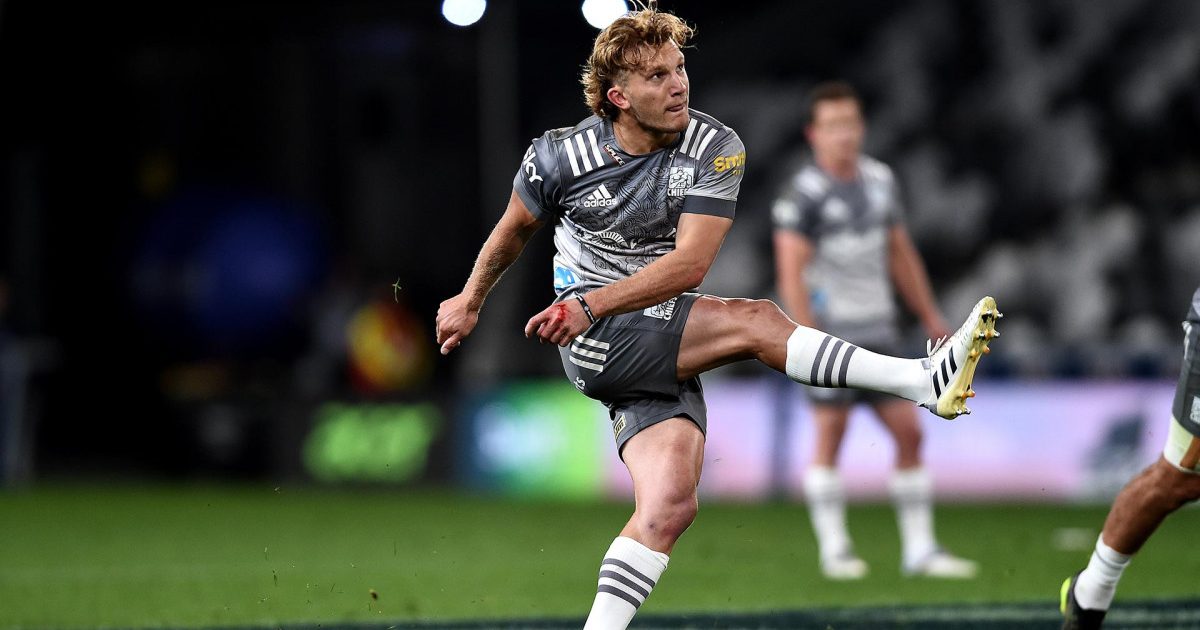Chiefs edge Highlanders in Dunedin in Super Rugby Aotearoa golden point thriller

Chiefs fullback Damian McKenzie kicked a 45-metre penalty in extra time to secure a dramatic 26-23 road victory over the Highlanders in the first ever golden-point win in Super Rugby Aotearoa.
McKenzie had missed a similar kick after the hooter in regulation time on a poor Saturday night off the tee at Forsyth Barr Stadium for both sides but came up trumps as the Chiefs moved to 12 points from five games, two behind the Blues in the second semi-final spot.
The Chiefs scored tries through winger Etene Nanai-Seturo and prop Angus Ta’avao, with their other 16 points coming from the boot of McKenzie.
The home side were behind for most of the match but rallied late to draw level, and scored their tries through flanker James Lentjes, scrum-half Aaron Smith and replacement flyhalf Josh Ioane.
Nanai-Seturo crossed for an early try for the visitors, acrobatically diving into the corner having been set up by scrum-half Brad Weber.
The Highlanders hit back almost immediately through Lentjes after he dummied to pass out of the back of a maul, tricking five Chiefs defenders into thinking he was going to the right before scooting round the left to dot down.
They drew level early in the second half with a second try from co-captain Smith as he benefited from loose forward Shannon Frizell’s excellent line break.
After landing two penalties following incessant pressure, the Chiefs grabbed a second try after a fine angled run from Ta’avao saw him crash over as they extended the lead to 10 points.
The Highlanders found some momentum in the closing stages though and an excellent maul towards the Chiefs line eventually saw the backline released and Ioane crossed to score next to the posts.
He then levelled with a penalty with three minutes remaining, before McKenzie missed a drop-goal attempt and a penalty from the halfway line.
If the teams are level after 80 minutes they play an extra 10, with the first side to score winning the game, and McKenzie made history by landing his penalty midway through the extra period.
Chiefs 26 (Tries to Etene Nanai-Seturo and Angus Ta’avao; 2 conversions and 4 penalties to Damian McKenzie)
Highlanders 23 (Tries to James Lentjes, Aaron Smith and Josh Ioane; penalty to Mitch Hunt, conversion and penalty to Ioane)














































































